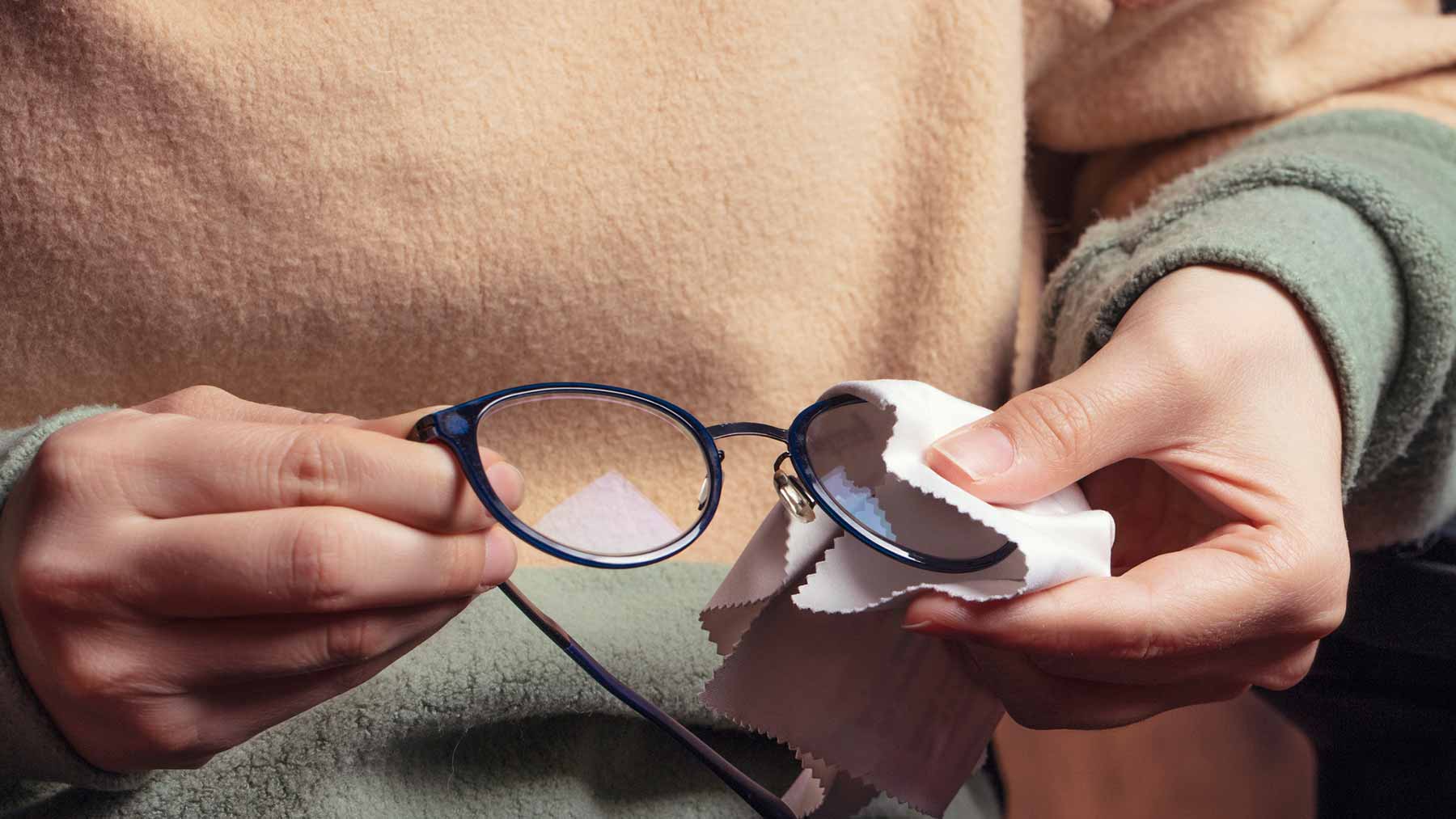Why contact lens wearers are switching to glasses during COVID-19 threat

Update 4/30/2020: Research does not indicate an increased risk for contact lens wearers as long as you are healthy and practice proper hand hygiene and contact lens cleaning. Glasses do not specifically protect against COVID-19. (Additional COVID-19 contact lens-related information is available from the Centers for Disease Control and Prevention: https://www.cdc.gov/coronavirus/2019-ncov/faq.html)
Don’t touch your face. That’s one of the recommendations infectious disease experts are making to prevent COVID-19 infections. But if you wear contact lenses, you touch your eyes every day, multiple times a day, to insert and remove lenses and make adjustments.
While you may prefer to wear contact lenses, there are several reasons why you may want to make a temporary switch to glasses:
- Your glasses can provide an extra barrier for your eyes and may help you avoid touching your eyes.
- You should switch to glasses if you’re sick or in contact with others who have symptoms.
- You should stop wearing contact lenses when you notice eye pain, eye redness or irritation with use.
If you decide to start wearing glasses, you still need to avoid touching your face and the glasses. It’s also recommended that you clean the glasses (lenses and frame) daily with soap and water for at least 20 seconds and dry them with a lint-free cloth. Avoid tissues and paper towels, as they can scratch the lenses.
Here are some recommendations for contact lens wearers who wear medically necessary contact lenses or are unable to switch to glasses:
- Handwashing is essential. Use soap and water and dry your hands with a clean towel or paper towel. An alcohol-based hand sanitizer will burn upon applying contact lenses.
- Follow the lens replacement schedule. Each contact lens has an FDA-approved timeframe to use the lens, whether daily, two weeks or monthly. For example, monthly lenses should be thrown away 30 days after opening the blister package. If you’re running low on lenses, contact your eye doctor to have lenses shipped directly to your home.
- Do not sleep in contact lenses. Sleeping in contact lenses increases the risk of developing an infection.
- Disinfect lenses nightly with the disinfectant prescribed by your eye doctor. Saline isn’t a disinfectant and isn’t approved to clean contact lenses. Discard solution in the case after applying lenses in the morning, and use new contact lens solution each night. Rub lenses with contact lens solution prior to placing them in disinfectant overnight, even if the solution says “no rub.”
- Replace the contact lens storage case every month. Cases over one month old show significant bacteria and can’t be properly cleaned. Cleaning cases with water or a dishwasher isn’t recommended, as it isn’t effective.
- Don’t use water. Water should never come in contact with the contact lens or the contact lens case. Water carries a variety of germs that can cause eye infections associated with contact lens use.
An eye infection I often see is pink eye, which is caused by a variety of viruses. Coronavirus and pink eye have been linked in about 1 to 3% of coronavirus patients. If you have any symptoms of eye irritation, eye redness or eye pain, call your eye doctor to discuss your symptoms.
Stephanie Pisano is an optometrist and assistant professor at the Havener Eye Institute at The Ohio State University Wexner Medical Center.




